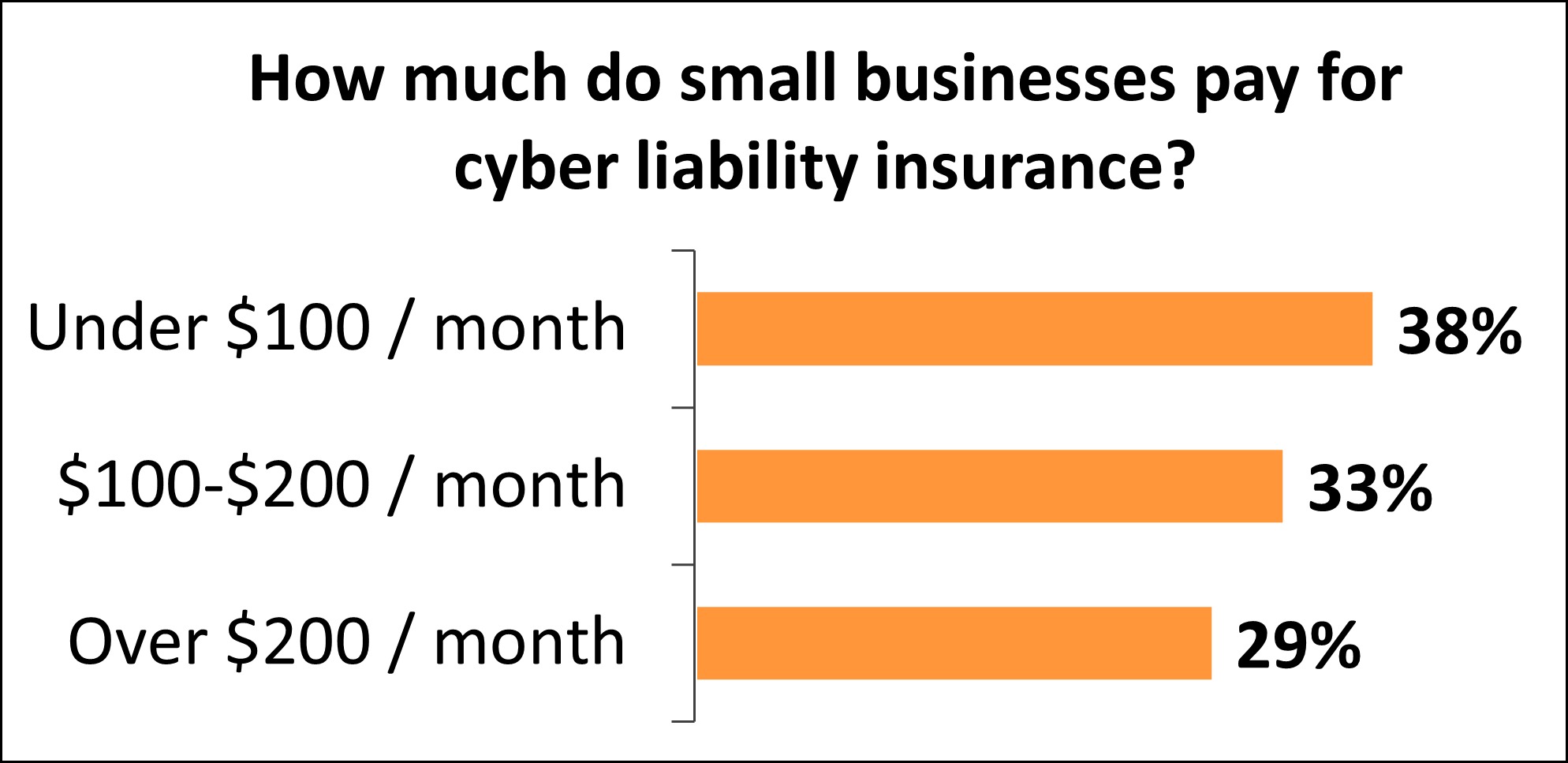Home>Finance>How To Check Your Credit Score Without Affecting It


Finance
How To Check Your Credit Score Without Affecting It
Published: October 21, 2023
Learn how to check your credit score without impacting your credit history. Get financial insights and manage your finances effectively with our finance tips and advice.
(Many of the links in this article redirect to a specific reviewed product. Your purchase of these products through affiliate links helps to generate commission for LiveWell, at no extra cost. Learn more)
Table of Contents
- Understanding Credit Scores and Why They Matter
- The Importance of Monitoring Your Credit Score
- Traditional Credit Score Checks and Their Impact
- Alternative Methods for Checking Your Credit Score without Affecting It
- Method 1: Utilizing Free Credit Score Services
- Method 2: Reviewing Credit Score Reports from Credit Bureaus
- Method 3: Seeking Credit Monitoring Services
- Method 4: Consulting with a Financial Advisor or Credit Counseling Agency
- Additional Tips for Maintaining a Healthy Credit Score
- Conclusion
Understanding Credit Scores and Why They Matter
When it comes to managing your personal finances, understanding your credit score is crucial. Your credit score is a three-digit number that reflects your creditworthiness and provides lenders with an indication of how likely you are to repay your debts. It is a vital factor in determining whether you will be approved for a loan, credit card, or mortgage, and it also influences the interest rates you may be offered.
Credit scores are typically calculated based on several factors, including your payment history, debt utilization, length of credit history, types of credit used, and recent credit inquiries. The most commonly used credit scoring models are FICO® Scores and VantageScores, with both ranging from 300 to 850.
Having a good credit score demonstrates responsible financial behavior and can open doors to better financial opportunities. With a higher credit score, you may be eligible for lower interest rates, increased credit limits, and more favorable loan terms. On the other hand, a poor credit score can limit your borrowing options and result in higher interest rates, making it more expensive to borrow money.
Monitoring your credit score regularly is essential to stay in control of your financial situation. By keeping a close eye on your credit score, you can identify potential areas of improvement, detect inaccuracies in your credit report, and take steps to maintain or improve your score.
Fortunately, there are several methods you can use to check your credit score without negatively impacting it. Let’s explore some of these alternative methods in the following sections.
The Importance of Monitoring Your Credit Score
Monitoring your credit score is an essential aspect of financial responsibility. It allows you to stay informed about your creditworthiness and take necessary actions to maintain or improve your score. Here are several reasons why monitoring your credit score is important:
1. Identifying Errors: By regularly checking your credit score, you can identify any errors or discrepancies in your credit report. Mistakes such as incorrect personal information, missed payments, or fraudulent activities can negatively impact your credit score. By catching these errors early on, you can take the necessary steps to correct them and protect your creditworthiness.
2. Preventing Identity Theft: Monitoring your credit score can help you detect signs of identity theft. If you notice sudden drops in your credit score or unfamiliar accounts or inquiries on your credit report, it could indicate fraudulent activity. Monitoring your score allows you to take immediate action to prevent further damage and protect your financial well-being.
3. Tracking Credit Improvement: If you have been working on improving your credit, monitoring your credit score can help you track your progress. As you make timely payments, reduce your debts, and practice responsible credit behavior, your score should gradually improve. Regularly checking your credit score allows you to see the positive impact of your efforts and motivates you to continue on the right path.
4. Preparing for Financial Goals: Whether you are planning to buy a house, purchase a car, or take out a personal loan, monitoring your credit score gives you an idea of your eligibility for credit and the interest rates you may be offered. By knowing your credit standing in advance, you can make informed decisions, improve your chances of approval, and potentially negotiate better terms.
5. Managing Credit Applications: Applying for credit can temporarily lower your credit score due to the hard inquiries made by lenders. By monitoring your credit score, you can time your credit applications strategically to minimize the impact on your overall score. This is particularly important if you are planning to apply for a mortgage or another significant loan in the near future.
Overall, regularly monitoring your credit score is an effective way to stay on top of your financial well-being and make informed decisions. It provides you with valuable insights into your creditworthiness, helps you detect errors and fraudulent activities, allows you to track your improvement efforts, and prepares you for important financial milestones. By taking a proactive approach to monitoring your credit score, you can pave the way for a healthier financial future.
Traditional Credit Score Checks and Their Impact
Traditional credit score checks, such as applying for new credit or loan, typically involve a hard inquiry on your credit report. While these checks are necessary in some situations, they can have an impact on your credit score. Here’s how:
1. Hard Inquiries: When you authorize a lender or financial institution to check your credit score, they will request a copy of your credit report from one or more credit bureaus. This is known as a hard inquiry, which can lower your credit score by a few points. While a single hard inquiry may not have a significant impact, multiple inquiries within a short period can be seen as a red flag and may lower your score further.
2. Temporary Score Dips: The impact of a hard inquiry on your credit score is usually temporary. Your score may decrease slightly in the short term but should rebound once the inquiry is no longer a determining factor. Typically, the effect of a hard inquiry fades away within a few months.
3. Shopping Around: If you are in the process of applying for a mortgage or auto loan, it is common practice to shop around and compare offers from multiple lenders. To minimize the impact on your credit score, credit scoring models typically treat multiple inquiries for the same type of loan within a specific time frame (usually 14-45 days) as a single inquiry. This gives you the flexibility to explore your options without significantly affecting your score.
4. Strategic Timing: Since hard inquiries can have a temporary negative impact on your credit score, it is advisable to be mindful of when you apply for new credit. If you are planning to make a major purchase or apply for a loan in the near future, it may be beneficial to hold off on other credit applications to avoid multiple hard inquiries close together.
While traditional credit score checks can have a temporary impact on your credit score, it is important to remember that responsible credit behavior and timely payments have a more significant long-term effect. By maintaining good credit habits and keeping your credit utilization ratio low, any negative impact from occasional hard inquiries can be mitigated.
In the following sections, we will explore alternative methods for checking your credit score without affecting it. These methods provide valuable insights into your credit health and help you make informed financial decisions while avoiding the temporary dents that traditional credit score checks can cause.
Alternative Methods for Checking Your Credit Score without Affecting It
If you’re looking to check your credit score without negatively impacting it, there are alternative methods available that provide valuable insights into your credit health. Here are some ways to check your credit score without affecting it:
1. Utilizing Free Credit Score Services: Many websites and financial institutions offer free credit score services that allow you to check your credit score without any impact. These services provide you with an estimate of your credit score based on data from credit bureaus. While these estimates may not be exact, they give you a general idea of your credit standing and can help you track any changes over time.
2. Reviewing Credit Score Reports from Credit Bureaus: You can request a free copy of your credit report from each of the three major credit bureaus (Equifax, Experian, and TransUnion) once a year. These reports do not include your credit score, but they provide a detailed overview of your credit history, including accounts, payment history, and any negative information. Reviewing your credit reports regularly allows you to identify any errors or discrepancies that may be impacting your credit score.
3. Seeking Credit Monitoring Services: Credit monitoring services provide ongoing monitoring of your credit report and alert you to any changes or potential issues. While some services require a paid subscription, they can often provide you with access to your credit score along with additional features such as credit monitoring, identity theft protection, and personalized recommendations for improving your credit.
4. Consulting with a Financial Advisor or Credit Counseling Agency: Financial advisors and credit counseling agencies can provide professional guidance on managing your credit and improving your credit score. They can review your credit reports, explain the factors influencing your credit score, and offer personalized recommendations to help you achieve your financial goals. Consulting with these professionals can give you a deeper understanding of your creditworthiness without any negative impact on your credit score.
Remember, these alternative methods may provide you with a credit score estimate or detailed information about your credit history, but they may not always reflect the exact credit score that lenders use for their assessments. However, they offer valuable insights into your credit health and allow you to track any changes or issues that may impact your overall creditworthiness.
In the next sections, we will explore additional tips for maintaining a healthy credit score, which can ultimately help you achieve your financial goals and secure better borrowing options in the future.
Method 1: Utilizing Free Credit Score Services
One of the easiest and most convenient methods for checking your credit score without affecting it is by utilizing free credit score services. Many websites and financial institutions offer this service, giving you access to an estimate of your credit score at no cost. Here’s how it works:
1. Choose a reputable free credit score service: Look for reputable websites or financial institutions that provide free credit score services. Ensure that the service is legitimate and trustworthy to protect your personal information.
2. Enter your personal information: To obtain your credit score, these services will typically ask for some basic personal information such as your name, date of birth, and social security number. This is necessary to verify your identity and pull up your credit information.
3. Review your credit score: Once you’ve entered your information, the service will generate an estimate of your credit score. While this estimate may not be an exact representation of the credit score lenders use, it gives you a general idea of where you stand financially.
4. Explore additional features: Some free credit score services offer additional features and information, such as insights into the factors impacting your credit score, tips for improving your credit, and personalized recommendations. Take advantage of these resources to gain a better understanding of your credit health.
Utilizing free credit score services allows you to regularly check your credit score, track any changes, and monitor your creditworthiness over time. It’s important to keep in mind that the credit score provided by these services may not be the exact score used by lenders, as different scoring models and criteria can vary. Nonetheless, they offer a valuable tool for assessing your credit health and making informed financial decisions.
Remember that regularly checking your credit score and staying informed about your creditworthiness is key to maintaining a healthy financial life. By utilizing free credit score services, you can have a clearer picture of your credit standing and take proactive steps to improve or maintain your credit score.
In the next section, we will explore another method for checking your credit score without impacting it: reviewing credit score reports directly from credit bureaus.
Method 2: Reviewing Credit Score Reports from Credit Bureaus
Another method for checking your credit score without affecting it is by reviewing your credit score reports directly from the credit bureaus. The three major credit bureaus, Equifax, Experian, and TransUnion, are required to provide consumers with a free copy of their credit report once a year. While these reports do not include your credit score, they offer detailed information about your credit history that can help you assess your creditworthiness. Here’s how you can obtain and review your credit reports:
1. Request your free credit reports: Visit the official website AnnualCreditReport.com, authorized by the credit bureaus, to request your free credit reports. Alternatively, you can contact each credit bureau individually to request your reports. Make sure to provide accurate personal information and follow the instructions carefully.
2. Receive your credit reports: Once you’ve requested your credit reports, you will receive them either online or by mail. Each credit bureau will provide a separate report, so review each one carefully to get a complete picture of your credit history.
3. Review your credit history: Take the time to carefully review your credit reports. Look for any errors, incorrect information, or suspicious activity that may be negatively impacting your creditworthiness. Pay attention to factors such as payment history, outstanding debts, credit utilization, and any derogatory marks on your report.
4. Dispute inaccuracies: If you find any errors or discrepancies in your credit reports, it’s important to dispute them with the respective credit bureau. Follow the dispute process outlined by the credit bureau to correct any inaccuracies, as these errors may be impacting your credit score.
Reviewing your credit score reports directly from the credit bureaus gives you a comprehensive view of your credit history and allows you to identify any potential issues that may be affecting your creditworthiness. While these reports do not include your credit scores, they provide valuable information that lenders consider when assessing your creditworthiness.
Remember to review your credit reports from all three credit bureaus to ensure accuracy across the board. Checking your credit reports annually, or even more frequently, allows you to stay on top of your credit health and take necessary actions to improve or maintain a healthy credit score.
In the next section, we will explore another alternative method for checking your credit score without affecting it: seeking credit monitoring services.
Method 3: Seeking Credit Monitoring Services
If you’re looking for a comprehensive and convenient way to check your credit score without affecting it, credit monitoring services offer an excellent solution. These services provide ongoing monitoring of your credit report and alert you to any changes or potential issues. Here’s how credit monitoring services work and how they can benefit you:
1. Choose a reputable credit monitoring service: Research and select a reputable credit monitoring service that suits your needs. Look for features such as credit score monitoring, identity theft protection, and regular credit report updates.
2. Sign up for the service: Once you’ve chosen a credit monitoring service, sign up and create an account. You may need to provide basic personal information and consent to allow the service to access your credit report from the credit bureaus.
3. Receive credit alerts: After signing up, the credit monitoring service will continuously monitor your credit report for any changes or suspicious activity. If there are any significant changes, such as a new account being opened in your name or a late payment reported, you will be alerted via email or an app notification.
4. Access your credit score and reports: Credit monitoring services often provide access to your credit score and detailed credit reports. You can view your score and reports within the service’s platform, allowing you to track your credit health and understand the factors impacting your score.
5. Take action when necessary: If you receive an alert or notice any suspicious activity, take immediate action to protect your identity and credit. Contact the credit monitoring service for guidance on next steps, such as freezing your credit or disputing fraudulent charges.
Credit monitoring services offer convenience and peace of mind by providing you with real-time updates on your credit health. They allow you to proactively monitor your credit score without negatively affecting it. By staying informed about changes to your credit report, you can take swift action to combat identity theft, resolve errors, or address any issues that may impact your creditworthiness.
Keep in mind that credit monitoring services may come with a monthly or annual fee, depending on the service provider and the level of features offered. However, the added benefits of ongoing credit monitoring and identity theft protection can make it a worthwhile investment for maintaining control over your credit health.
In the next section, we will explore another alternative method for checking your credit score without affecting it: consulting with a financial advisor or credit counseling agency.
Method 4: Consulting with a Financial Advisor or Credit Counseling Agency
If you prefer personalized guidance and expert advice when checking your credit score without affecting it, consulting with a financial advisor or credit counseling agency can be a beneficial option. These professionals can help you understand your credit score, offer tailored recommendations, and assist in improving your overall financial health. Here’s how consulting with a financial advisor or credit counseling agency can be advantageous:
1. Expert insights and analysis: Financial advisors and credit counseling agencies have a deep understanding of credit scoring models and how they are calculated. They can examine your credit report, assess your financial situation, and provide valuable insights into the factors impacting your credit score. Their expertise allows them to identify potential areas for improvement and offer actionable recommendations.
2. Credit score evaluation: By consulting with a financial advisor or credit counseling agency, you can obtain a comprehensive evaluation of your credit score and credit report. They can help you interpret the information, explain any negative factors affecting your score, and guide you on how to address them effectively.
3. Personalized credit improvement strategies: A financial advisor or credit counseling agency can help develop a personalized plan to improve your credit score. They can educate you on credit management techniques, such as reducing debt, making timely payments, and optimizing credit utilization. Having a tailored strategy based on expert advice can significantly enhance your credit health.
4. Long-term financial planning: Consulting with a financial advisor goes beyond just checking your credit score. They can assist in creating a comprehensive long-term financial plan, including budgeting, debt management, and investment strategies. By addressing both credit-related and broader financial goals, you can set yourself up for a stronger financial future.
Before consulting with a financial advisor or credit counseling agency, ensure that you choose a reputable and qualified professional or organization. Look for certifications, client testimonials, and reviews to verify their expertise and credibility. A trusted advisor will have your best interests in mind and work with you to achieve your financial goals.
While consulting with a financial advisor or credit counseling agency may involve some costs, the invaluable guidance they provide can be well worth it. Their knowledge and experience can empower you to make informed decisions, improve your credit score, and enhance your overall financial well-being.
In the next section, we will provide additional tips for maintaining a healthy credit score and managing your personal finances effectively.
Additional Tips for Maintaining a Healthy Credit Score
Maintaining a healthy credit score is essential for overall financial well-being. Here are some additional tips to help you improve and maintain a strong credit score:
1. Pay your bills on time: Payment history is a crucial factor in determining your credit score. Ensure that you make all your payments, including credit cards, loans, and utilities, on time. Consider setting up automatic payments or calendar reminders to help you stay on track.
2. Keep your credit utilization low: Credit utilization is the ratio of your credit card balances to your credit limits. Aim to keep your utilization rate below 30% to demonstrate responsible credit management. Paying off balances in full each month is an effective way to achieve this.
3. Avoid opening unnecessary new accounts: While having a diverse credit mix is beneficial, avoid opening multiple new accounts within a short period. Each new account results in a hard inquiry and temporarily lowers your credit score. Only apply for new credit when necessary.
4. Monitor your credit report regularly: Stay vigilant by checking your credit reports regularly for accuracy and any unauthorized activity. Reviewing your reports can also help you identify areas for improvement and take timely action to address any issues.
5. Limit credit applications: Be strategic when applying for new credit. Multiple credit applications within a short period can signal financial distress and lower your credit score. Only apply for credit when you genuinely need it.
6. Keep old accounts open: Closing old accounts can negatively impact your credit utilization ratio and reduce the average age of your credit history. If you no longer use an account, consider keeping it open with a small recurring charge to maintain its positive impact on your credit score.
7. Regularly review your credit score: Continuously monitor your credit score to track your progress and identify any sudden changes. You can utilize free credit score services or credit monitoring services for this purpose.
8. Communicate with creditors in case of difficulty: If you encounter financial difficulties and struggle to make payments, reach out to your creditors. Explaining your situation and working out a mutually beneficial solution can help minimize the negative impact on your credit score.
9. Use credit responsibly: Be mindful of your credit usage and avoid excessive debt. Use credit cards and loans wisely, keeping in mind that responsible credit behavior positively affects your credit score.
10. Seek professional advice, if needed: If you feel overwhelmed or unsure about managing your credit, consider seeking advice from a financial advisor or credit counseling agency. They can provide customized guidance based on your specific financial situation.
By implementing these tips and practicing responsible credit habits, you can maintain a healthy credit score and improve your overall financial well-being. Remember that building and maintaining good credit takes time and consistent effort, so be patient and persistent in your financial journey.
Conclusion
Your credit score plays a vital role in your financial journey. Understanding and monitoring your credit score is essential for making informed decisions, securing favorable interest rates, and achieving your financial goals. While traditional credit score checks can temporarily impact your score, there are alternative methods available to check your credit score without affecting it directly.
Utilizing free credit score services, reviewing credit score reports directly from credit bureaus, seeking credit monitoring services, and consulting with a financial advisor or credit counseling agency are all effective ways to assess your credit health. These methods provide valuable insights into your creditworthiness, allow you to track changes over time, and offer expert guidance to improve your credit score and overall financial situation.
To maintain a healthy credit score, it’s important to pay bills on time, keep your credit utilization low, and limit unnecessary credit applications. Regularly monitoring your credit report, keeping old accounts open, and practicing responsible credit usage are also crucial steps in maintaining a strong credit score.
Remember that building and maintaining good credit is a journey that requires consistent effort and responsible financial habits. By staying informed, being proactive, and taking necessary steps to improve your credit, you can pave the way for a brighter financial future.
Whether you choose to utilize free credit score services, review credit score reports, seek credit monitoring, or consult with professionals, staying on top of your credit health will empower you to make informed financial decisions and achieve your financial goals with confidence.














